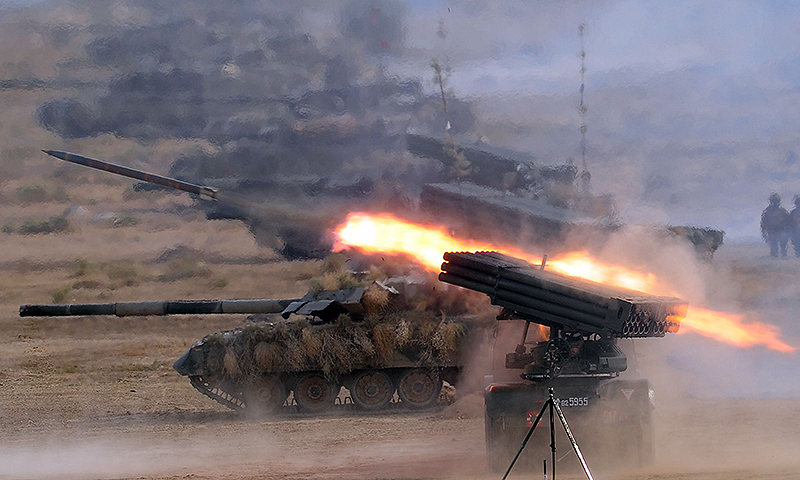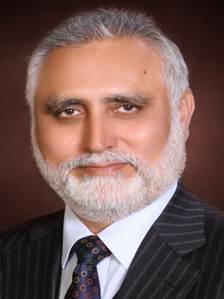(27 June, 2014)

(Operation Zarb e Azb: Photo Courtesy Dawn News)
By: Toaha Qureshi MBE
Recent news has been hit with updates on “Operation: Zarb-e-Azb (Strike of the Prophet’s Sword)” being executed in North Waziristan following the vicious attack on Karachi airport earlier this month. The attack has been seen as the tipping point for military action since the dialogue process with militants have been blowing hot and cold since it started.
With such uncertainty, distrust and apprehensions have stemmed over the rationale and reason for dialogue and peace process. The operation, announced and initiated by the military and then endorsed by the Nawaz led PML N government, has shown initial results yet claimed a number of innocent lives as well according to media sources. This exercise was aimed at rooting out and eliminating extremist elements, both national and foreign.
However, peace negotiations and discourse has been a strong force in the past. History has shown that dialogue has brought people together rather than pulling them away. We can briefly look at case studies from all over the world but perhaps, most poignantly, the case of the IRA hits home more than others since it involved the British people as well as the government.

(Historic Handshake: Britain’s Queen Elizabeth II shakes hands with Northern Ireland Deputy First Minister and former IRA commander Martin McGuinness watched by First minister Peter Robinson, centre, at the Lyric Theatre in Belfast, Northern Ireland, Wednesday, June 27, 2012. AP Photo/Paul Faith/pool)
The IRA, as many know, was responsible for the death of Lord Mountbatten (the Queen’s cousin) due to “the continuing occupation” of Ireland as well as the attempted murder of late, former PM Margaret Thatcher, along with her closest aides. Fast forward a few decades and leaders of the IRA are meeting and greeting with the Queen – an inconceivable notion when IRA leaders were scheming to assassinate our British royal family. Despite years of military warfare between the two sides, it ultimately achieved nothing but death and more heartache for the public. The road to peace was long and tortuous, but political parties were able to uproot the violence.
An interesting fact worth nothing is the use of a mediator with religious background during the IRA talks. Therefore, religious and/or religio-political figures can be a positive influence on the state of peace and justice in the country. The Good Friday Agreement is a clear example of the agreements that can be struck with militants in Pakistan and elsewhere. A viable, time bound and structured plan to decommission weapons of paramilitary groups and normalisation of security arrangements allowed the two governments to work together to be part of the now peaceful United Kingdom and N. Ireland.
Another example can be taken from the once rampaging war mongers Pastor James Wuye and Imam Muhammad Ashafa of Kaduna (Nigeria) who are currently working to heal a divided community through religious mentoring and community cohesion programmes. Before they became friends to promote peace, they were enemies training young locals and turning them into militia groups. What was the backdrop to such a bloody period of time? Religious intolerance and revenge motivated savagery from both sides. However, the tides turned for both individuals in the 90’s when religion shed light on their dark days.

(Pastor James Wuye and Imam Muhammad Ashafa)
For the Imam, the fabled stories of the Prophet Muhammad’s (PBUH) visit to a city called Taif resulted in him being attacked; alas, the Prophet was offered the opportunity to seek revenge but instead opted to forgive his attackers in the hope that they may one day see the light. Additional verses from the Quran to support the story changed his heart. The pastor was at first wary of the sudden change by the Imam, but he too was changed after another pastor had advised him that he couldn’t practice the teachings of Christianity with hatred in his heart. The violence stopped, dialogue began and the community came together. It was about being open to the idea of understanding and working on the common ground of being spiritually connected to God that allowed them to flourish as peacemakers.
On a more global scale, case studies of both world war one and world war two can be used as examples to illustrate the ultimate peace achieved between much of Europe despite the bloodshed and massacre the two wars riddled the world with. Although these wars were not resolved through religion, it has been partnership, friendship and dialogue that kept the countries together. Whilst the situations are of a different level, they can be seen as different facets of the same shape. It was only through agreements and negotiations that peace came about especially during tense periods of time.
Furthermore, speaking on the situation of Afghanistan and the war, Prime Minister David Cameron acknowledged that the original settlement for Afghanistan “could have been better arranged”. General Nick Carter, deputy commander of the Nato-led coalition, said ‘We should have talked to Taliban’. He said to the Guardian, “Back in 2002, the Taliban were on the run. I think that at that stage, if we had been very prescient, we might have spotted that a final political solution to what started in 2001, from our perspective, would have involved getting all Afghans to sit at the table and talk about their future,”
Pakistan, too, can benefit from peace talks which could give the government much needed respite. After the attacks on Karachi airport, future peace talks received worldwide speculation. Will it continue? What are the gains and losses? Can anything be salvaged? Should the government seek revenge? Are we playing tit-for-tat? At the moment, the ultimate endeavours of Pakistan can be leveraged against the security of the country, i.e. the volatility of the state will give decision makers a pause in any situation.
The opposite side to the peace dialogues coin can be seen in the troubled country Sri Lanka. In this case, the world saw a ruthless operation completely obliterate the violent militant groups causing death and disaster. After over two decades of fighting, major military offences were executed to drive out the Liberation Tigers of Tamil Eelam (LTTE). In this scenario, it is clear that significant suffering for the population, environment and the economy of the country will be the fallout from such action. The United Kingdom and its American ally have claimed success in Afghanistan as their withdrawal from the country moves ever closer; although it is debatable as to whether they have in fact achieved success.
In Pakistan, the military’s targeted operations have already resulted in IDP’s (internally displaced persons) as well as causing damage to the surrounding environments. How can Pakistan move forward in 2014? It needs to strike a balance between its processes; stay resolute and tough as well as understanding.
We must never forget the heartbreakingly true saying “violence begets violence”. Recent events in the last decade and a half of military responses covering Afghanistan, Iraq, Libya, Syria, Egypt etc. has fuelled extremism, radicalisation and extremist/militant groupings. So, in order to protect future generations and the world we live in; do we pursue peaceful dialogue or follow a route of war like action?
Note: Lord Mountbatten was involved in the partition of British India which later created Pakistan – speaking on the founder of Pakistan, he said “If it could be said that any single man held the future of India in the palm of his hand in 1947, that man was Mohammad Ali Jinnah.”

About the Author:
Toaha Qureshi is a British Pakistani educationist, strategist, policy analyst and philanthropist. He is Chairman of Forum for International Relations Development (FIRD). Toaha Qureshi was appointed Member of the Order of The British Empire after being awarded an MBE by Her Majesty the Queen, Elizabeth II, in 2009 for services rendered for community relations.
![[X] Close](http://www.fird.org.uk/wp-content/themes/fird/images/close.png)





